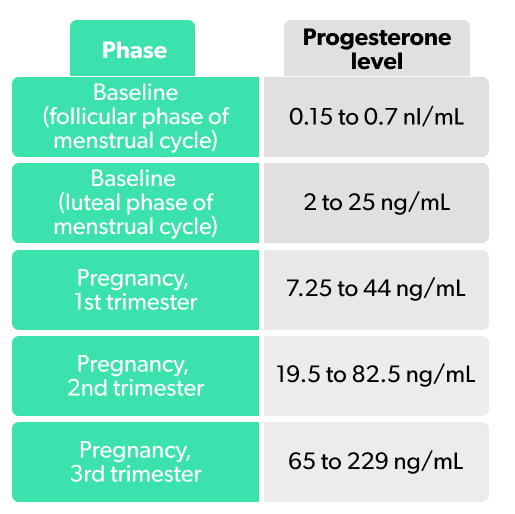
Low Progesterone Levels Early in Pregnancy: A Comprehensive Guide
Introduction
Progesterone is a hormone produced by the corpus luteum, a small gland that forms on the ovary after ovulation. During early pregnancy, progesterone plays a crucial role in maintaining the uterine lining and supporting the developing embryo. Low progesterone levels early in pregnancy can be a cause for concern, as they may increase the risk of miscarriage.
Physiology of Progesterone
Progesterone is essential for the maintenance of pregnancy. It prepares the uterus for implantation by thickening the uterine lining and increasing blood flow. It also relaxes the uterine muscles, preventing premature contractions. Additionally, progesterone suppresses the immune system, allowing the embryo to implant and grow without being rejected.
Causes of Low Progesterone Levels
Several factors can contribute to low progesterone levels early in pregnancy:
- Corpus luteum insufficiency: The corpus luteum may not produce enough progesterone due to underlying medical conditions, such as polycystic ovary syndrome (PCOS) or luteal phase defect.
- Ovarian cysts: Cysts on the ovaries can interfere with the production of progesterone.
- Ectopic pregnancy: An ectopic pregnancy occurs when the embryo implants outside the uterus, leading to insufficient progesterone production.
- Placental abnormalities: In some cases, the placenta may not develop properly and produce adequate progesterone.
- Medications: Certain medications, such as birth control pills and anti-inflammatory drugs, can suppress progesterone production.
Symptoms of Low Progesterone Levels
Low progesterone levels early in pregnancy may not always cause noticeable symptoms. However, some women may experience:
- Vaginal spotting or bleeding
- Abdominal pain or cramping
- Breast tenderness
- Fatigue
- Mood swings
Diagnosis
Low progesterone levels can be diagnosed through a blood test. The optimal progesterone level during early pregnancy varies depending on the gestational age. Generally, levels below 10 ng/mL are considered low.
Treatment
The treatment for low progesterone levels early in pregnancy depends on the underlying cause. In most cases, progesterone supplementation is recommended to support the pregnancy. Progesterone can be administered orally, vaginally, or through injections.
Oral Progesterone: Oral progesterone is typically taken twice or three times a day. It is important to take the medication exactly as prescribed to maintain adequate progesterone levels.
Vaginal Progesterone: Vaginal progesterone is inserted into the vagina once or twice a day. It is absorbed directly into the bloodstream, bypassing the digestive system.
Injections: Progesterone injections are given intramuscularly once or twice a week. This method is used when high levels of progesterone are needed quickly.
Monitoring
Women with low progesterone levels early in pregnancy will typically need to be monitored closely. This may involve regular blood tests to check progesterone levels and ultrasound examinations to assess fetal growth and development.
Risks
Low progesterone levels early in pregnancy can increase the risk of:
- Miscarriage
- Preterm birth
- Intrauterine growth restriction (IUGR)
- Placental abruption
Prognosis
The prognosis for women with low progesterone levels early in pregnancy depends on the underlying cause and the severity of the progesterone deficiency. With appropriate treatment, most women are able to carry their pregnancies to term and deliver healthy babies.
Prevention
There is no sure way to prevent low progesterone levels early in pregnancy. However, women with a history of progesterone deficiency or underlying medical conditions that may affect progesterone production should discuss their concerns with their healthcare provider.
Conclusion
Low progesterone levels early in pregnancy can be a cause for concern, as they may increase the risk of miscarriage and other pregnancy complications. However, with early diagnosis and appropriate treatment, most women are able to maintain their pregnancies and deliver healthy babies. It is important for women to be aware of the symptoms of low progesterone levels and to seek medical attention if they experience any concerns.